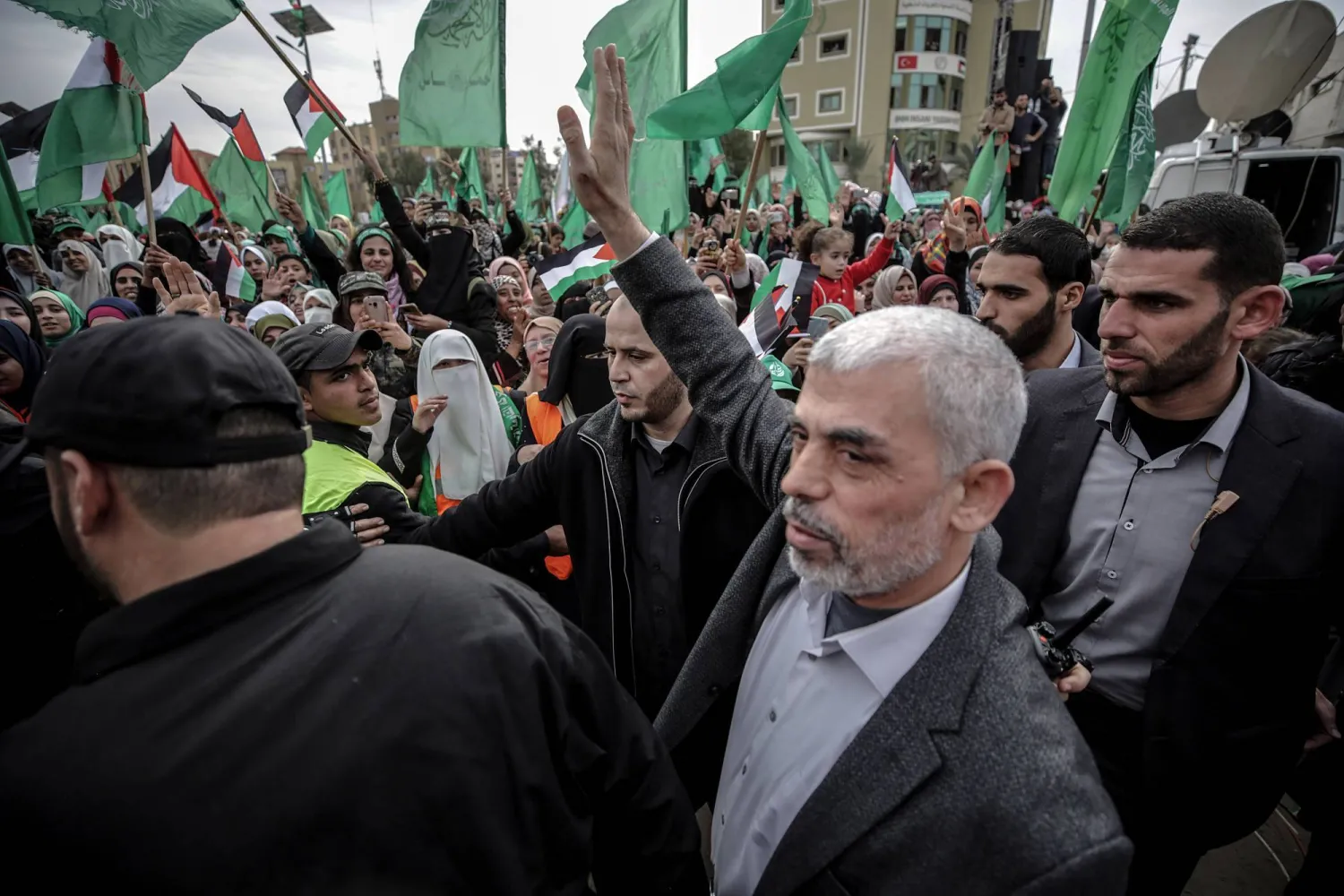Palestinian sources told Asharq Al-Awsat that the assassination of Hamas leader Yahya Sinwar is the “biggest blow” to the group since it was founded, even more significant than the deaths of its other leaders.
They said his killing leaves “a difficult gap to fill” and is likely to impact the situation in Gaza, the future of Hamas, and possibly the wider conflict between Iran and Israel.
Sinwar wasn’t just another Hamas leader. After launching the “Al-Aqsa Flood” on Oct. 7 last year, he became the group’s most iconic figure.
He was the “mastermind” behind the operation that exposed one of Israel’s greatest intelligence failures. Sinwar had unmatched control over Hamas’ military wing, the Al-Qassam Brigades, which is still battling in a devastated Gaza, where over 40,000 people have died.
He also strengthened Hamas’ ties with Iran, securing financial, military, and technical support from Tehran.
Under Sinwar, Hamas saw something new: both political and military decisions were controlled by one man, with strong public support in Gaza. Sinwar was seen by Hamas members as a charismatic leader, untouched by internal power struggles.
His assassination is a major win for Israeli Prime Minister Benjamin Netanyahu, who had promised to go after everyone involved in the Al-Aqsa Flood operation.
This adds to Netanyahu’s list of high-profile assassinations, which includes Hezbollah leader Hassan Nasrallah. The killing also shows that the issue of hostages held by Hamas is no longer a major factor in Israel’s decision-making.
Key points from sources:
Hamas has a leadership structure to handle the loss of its leaders, but no one with Sinwar’s unique skills is left, especially after the deaths of key figures behind the Al-Aqsa Flood.
Unlike Hezbollah, Hamas is trapped in a besieged area, making it harder to receive help. Hezbollah, in contrast, can easily get support from Iran, including leadership aid.
Sinwar’s death won’t end Hamas, but it will weaken the group.
Decision-making will likely slow down, especially in balancing the political and military wings.
Sinwar’s assassination raises questions about the ongoing fighting in Gaza and the fate of hostages. His death could spark a wave of suicide attacks.
Without Sinwar, it will be hard for any new Hamas leader to accept a ceasefire, especially after the heavy Israeli strikes and the loss of key leaders, including Ismail Haniyeh, who was killed in Tehran.
The killing comes at a tense time, with Israel preparing for a possible strike on Iran, increasing the risk of a wider regional conflict.
It’s unclear how Sinwar’s death will impact Israel’s approach, or if it will bring the hostages back into focus, as some Israeli leaders suggest a ceasefire may now be possible.
Hamas Faces Leadership Void amid Complex Challenges

Hamas leader Yahya Sinwar during the 31st anniversary celebrations of his movement in 2018 (EPA)

Hamas Faces Leadership Void amid Complex Challenges

Hamas leader Yahya Sinwar during the 31st anniversary celebrations of his movement in 2018 (EPA)
لم تشترك بعد
انشئ حساباً خاصاً بك لتحصل على أخبار مخصصة لك ولتتمتع بخاصية حفظ المقالات وتتلقى نشراتنا البريدية المتنوعة







